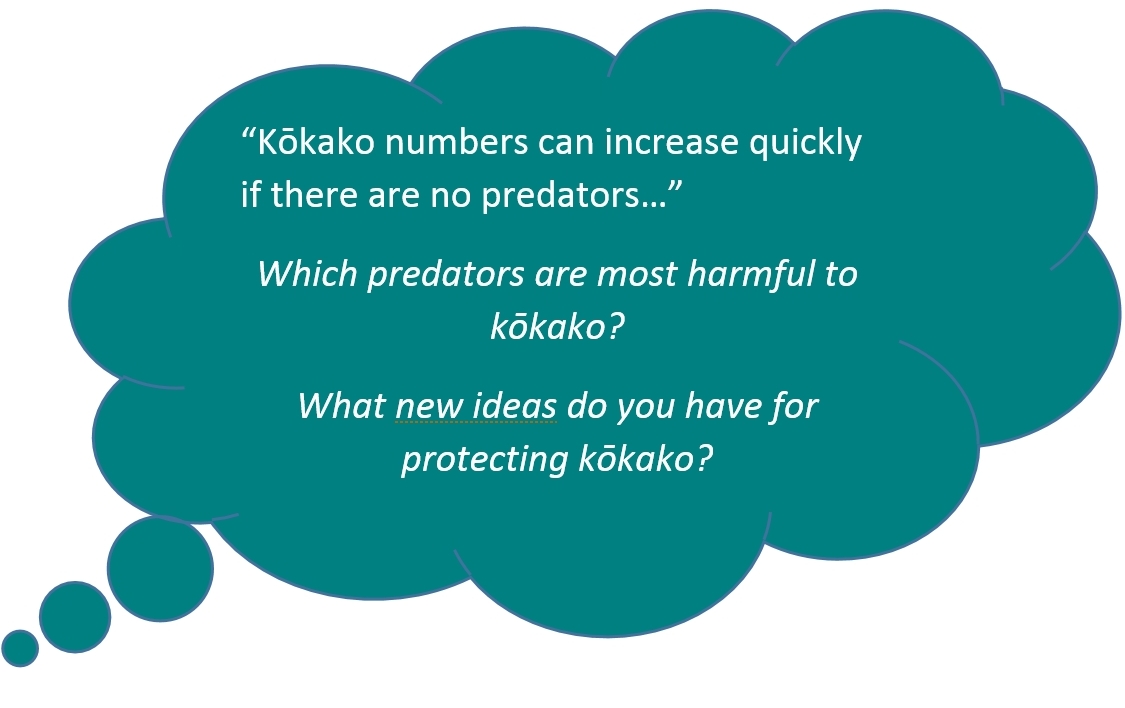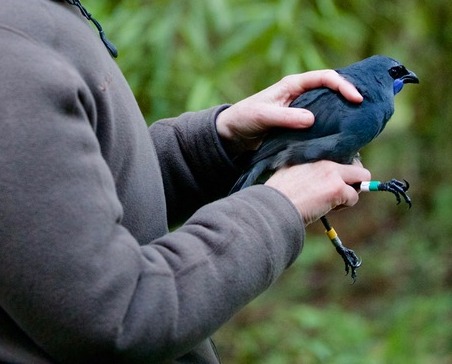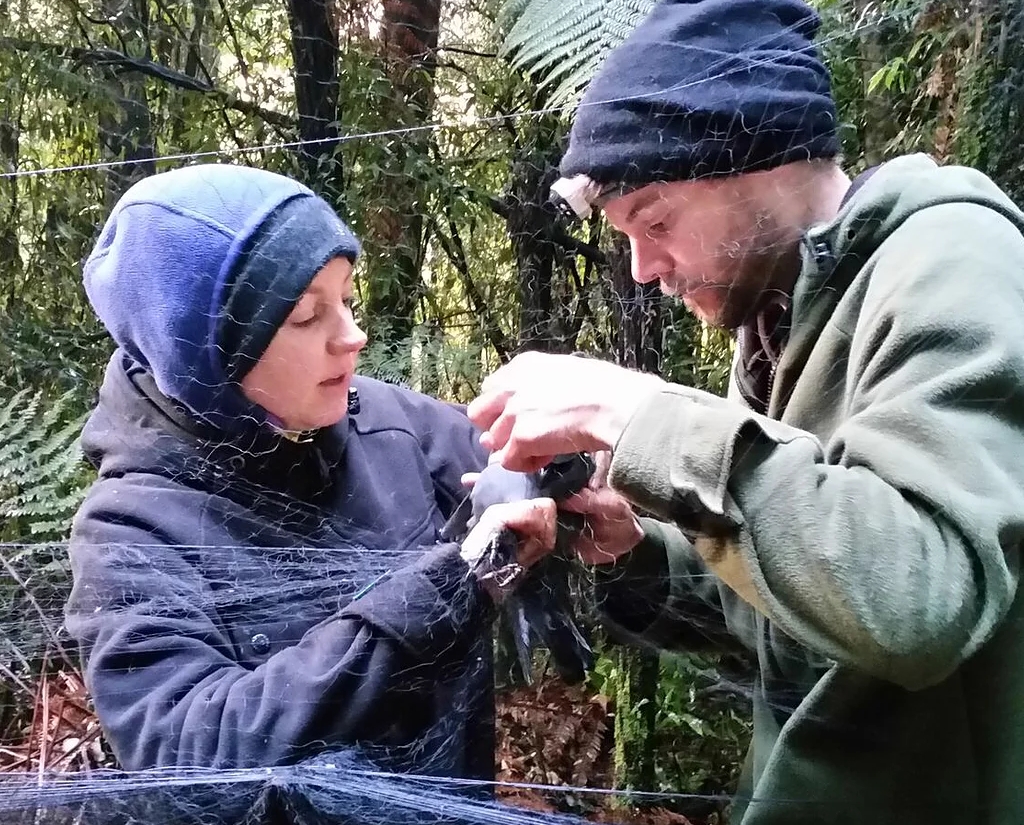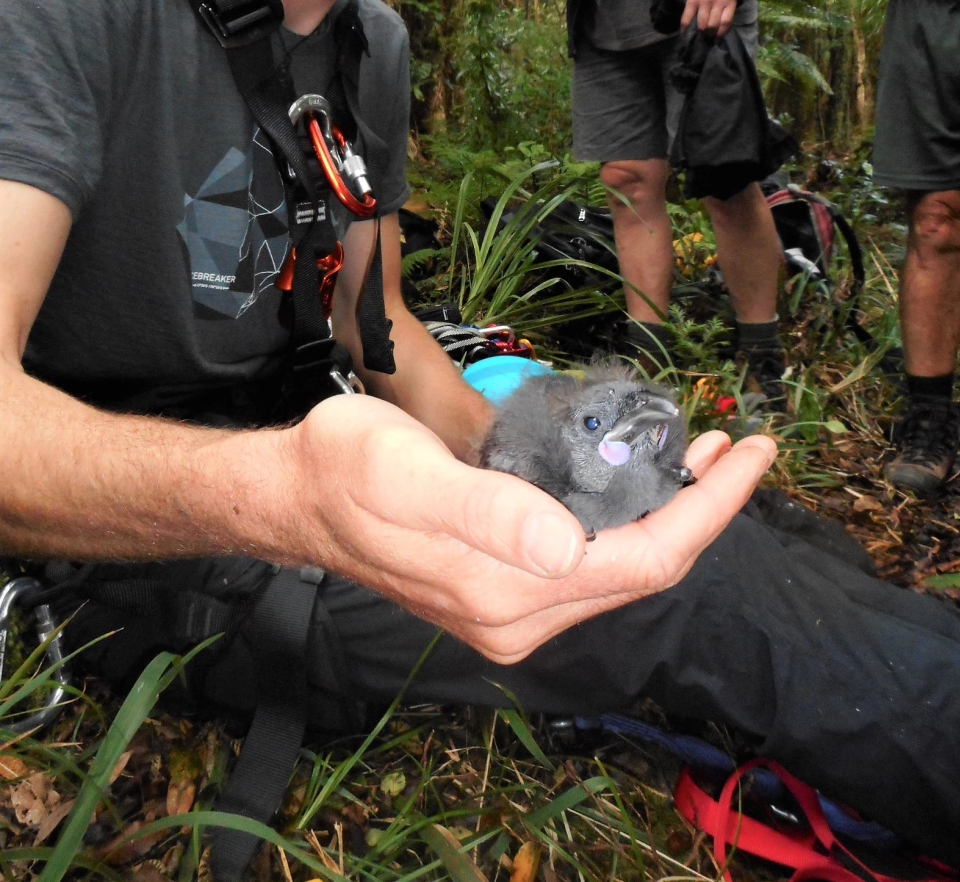North Island kōkako numbers have fallen over the last 20 years. Conservation work is now helping boost kōkako numbers.
Recovery plan
The Department of Conservation and community groups are working to boost kōkako numbers. For kōkako numbers to recover there needs to be:
- long-term control of predators using traps and poison
- Looking after genetics by moving kōkako from different areas to breed with different birds
- Planting natives to improve kōkako habitat
- Bringing kōkako back to areas where they once lived.
Research
To look after kōkako there needs to be a greater understanding of kōkako and how they live. Long term research projects will help. So far research has shown that if predators can be removed or controlled at very low numbers then kōkako numbers will quickly increase.
Island populations
Pest free islands can be a safe home for native birds. Without predators, bird numbers can increase. These populations need to be managed with new birds brought in.
Birds from different areas have different genes and when they breed they have offspring with different genes.
This mix of genes keeps the population healthy. If the same birds always breed together then there is not enough mixing of genes and the gene pool becomes very small. This can lead to sickness and low breeding rates.
Translocation
One method to increase kōkako numbers is to move (translocate) birds from one area to another. This is done so that:
- birds can be taken to areas where predators have been controlled
- birds can be brought back to areas where they once lived after predators have been removed
- birds from different areas can be brought together to breed and maintain a healthy mix of genes
You can help
People working together helps kōkako. Volunteers can help:
- Count kōkako to gain a better understanding of kōkako numbers in different areas
- Control predators by setting traps and bait lines
- Plant natives to give kōkako a home
- Call 0800 DOC HOT (0800 362 468) immediately if you see anyone catching, harming or killing native wildlife.
When visiting forest areas 
- Only take dogs to areas that allow them, and keep them under control
- Check for pests when visiting pest-free islands
- Leave nesting birds alone
- Stick to the track
- Clean footwear and gear before entering a forest to avoid the possible spread of harmful organisms
- Don’t leave rubbish
- Don’t feed birds
Other ways to help
- Volunteer to control predators and restore bird habitats in your local area
- Set predator traps on your property
- Put a bell on your cat's collar and feed it well.
Complete the bringing kōkako back quiz >






